
Tacca leontopetaloides
(MRP Inclusive of all taxes)
- Shipping ₹79 for entire order
- Dispatch in 7 days
- Country of origin: India

(MRP Inclusive of all taxes)
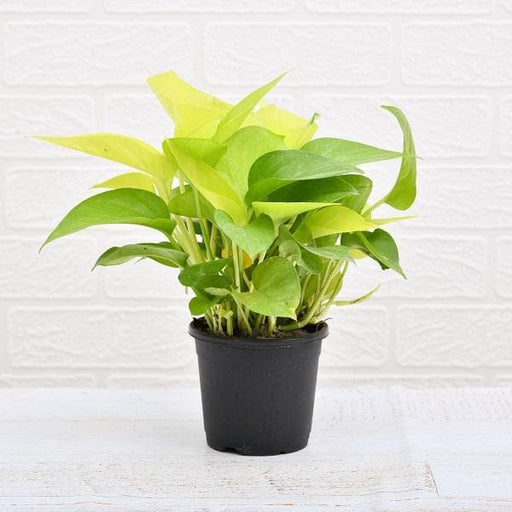 Save 29%
Save 29%
Air Purifier Money Plant with Pot The Air Purifier Money Plant, also known as Pothos or Epipremnum aureum, is a stunning indoor plant that...
View full details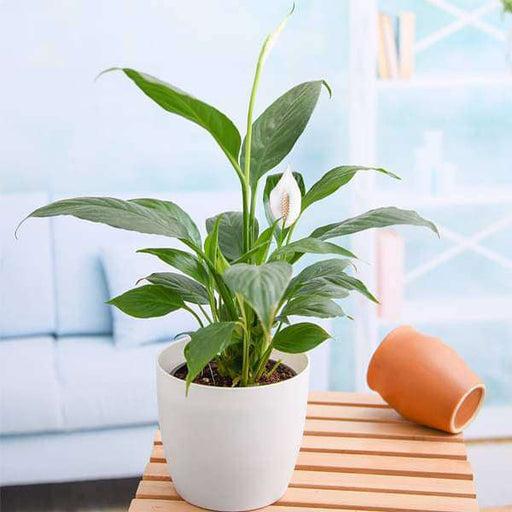
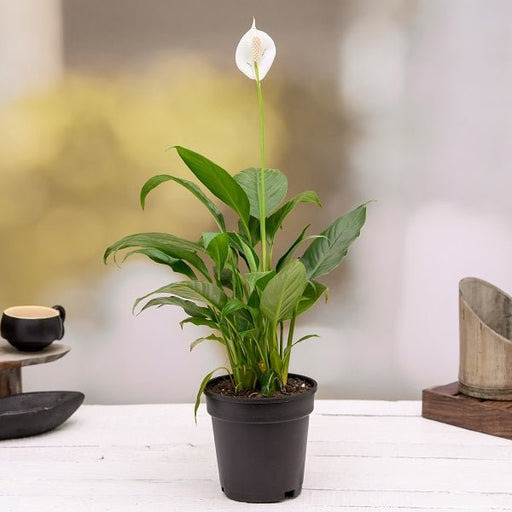 Save up to 15%
Save up to 15%
Peace Lily, Spathiphyllum - Plant The Peace Lily, scientifically known as Spathiphyllum, is a stunning houseplant celebrated for its elegant white...
View full details
 Save 25%
Save 25%
Jasminum sambac, Mogra, Arabian Jasmine - Plant Jasminum sambac, commonly known as Mogra or Arabian Jasmine, is a fragrant flowering plant...
View full details
 Save 18%
Save 18%
Combo Constituents Includes the Parijat Tree (Night-Flowering Jasmine), a culturally significant plant with fragrant flowers. Description The Pari...
View full details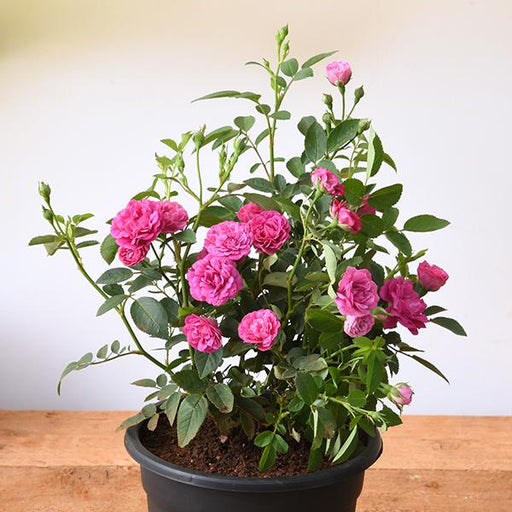
 Save 25%
Save 25%
Miniature Rose, Button Rose (Any Color) - Plant The Miniature Rose, also known as the Button Rose, is a charming and compact flowering plant that ...
View full details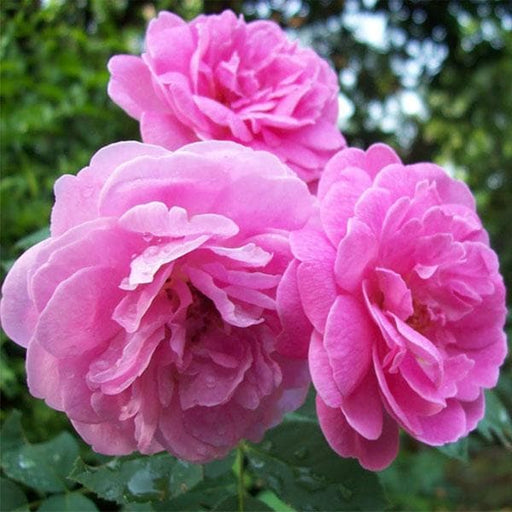 Save 25%
Save 25%
Damascus Rose, Scented Rose (Any Color) - Plant The Damascus Rose, also known as Rosa damascena, is a timeless symbol of beauty and romanc...
View full details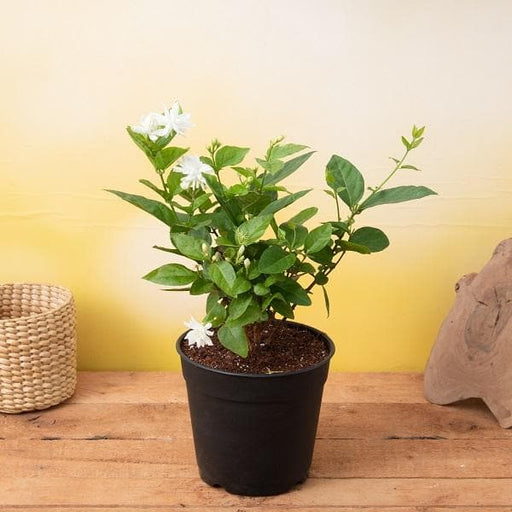
 Save 17%
Save 17%
Beautiful Fragrant Mogra, Arabian Jasmine Plant with Pot The Beautiful Fragrant Mogra, also known as Arabian Jasmine (Jasminum sambac), is...
View full details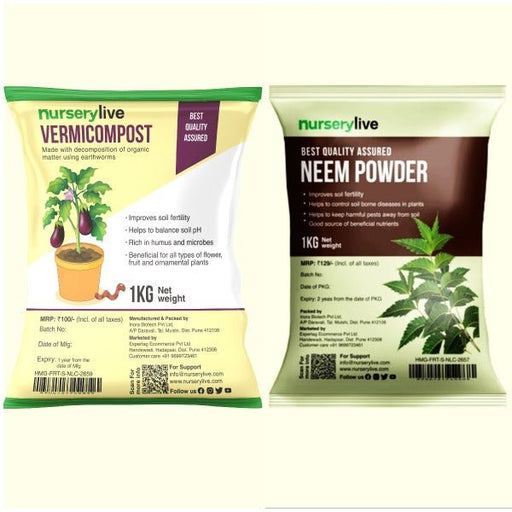 Save 15%
Save 15%
Pack of Vermicompost and Neem Cake for House Plants Transform your indoor garden with our premium Pack of Vermicompost and Neem Cake, spec...
View full details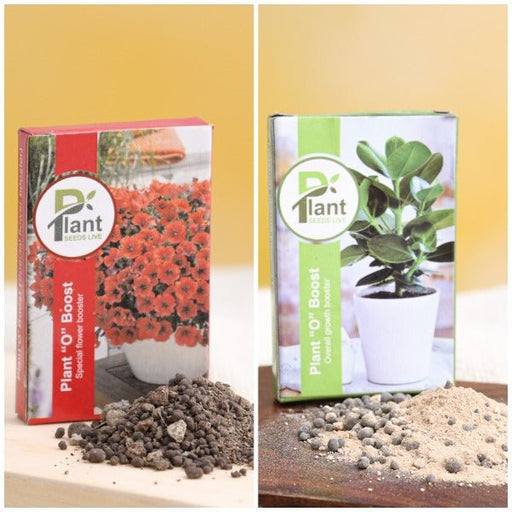
Pack of Plant Growth and Flower Boosters Unlock the full potential of your garden with our Pack of Plant Growth and Flower Boosters! This ...
View full details Save 38%
Save 38%
Combo of Jeevamrut and Neem Raksha for Easy Growth and Protection of Houseplants Transform your indoor garden with our exclusive combo of ...
View full details Save 22%
Save 22%
Plant Nutrients Kit (Pack of 16) for a Healthy Garden Transform your garden into a lush paradise with our Plant Nutrients Kit, featuring 1...
View full details Save 16%
Save 16%
Combo of Top Plant Fertilizers Elevate your gardening game with our exclusive Combo of Top Plant Fertilizers, featuring two bags of premiu...
View full details Save 24%
Save 24%
Pack of 4 Additives to Make Soil Healthy and Nutrient Rich Transform your garden into a thriving ecosystem with our Pack of 4 Additives de...
View full details Save 30%
Save 30%
Transform your gardening experience with our premium Combo of Perlite and Vermiculite. This unique blend is designed to enhance soil aeration and ...
View full details Save 27%
Save 27%
Combo of 2 Vermicompost and Cocopeat - Enrich Your Soil Naturally! Transform your garden into a thriving ecosystem with our Combo of 2 Ver...
View full details
 Save 35%
Save 35%
Best 6 Plants for Perfect Indoor Garden Transform your living space into a lush oasis with our curated collection of the Best 6 Plants for a...
View full details
 Save up to 50%
Save up to 50%
Mini Succulent Garden Pack Transform your space with our Mini Succulent Garden Pack, featuring a delightful collection of 4 any variety beautiful s...
View full details
 Save 30%
Save 30%
5 Best Fragrant Plants Transform your garden or indoor space into a fragrant paradise with our curated selection of the 5 Best Fragrant Plants. Th...
View full details
 Save 24%
Save 24%
Set of 2 Bonsai Looking Grafted Adeniums Transform your indoor or outdoor space with our exquisite Set of 2 Bonsai Looking Grafted Adenium...
View full details Save 45%
Save 45%
Top 4 Die Hard Succulents Pack Transform your indoor or outdoor space with our Top 4 Die Hard Succulents Pack, featuring a curated selecti...
View full details
 Save 30%
Save 30%
5 Best Indoor Plants Pack Transform your living space into a lush oasis with our '5 Best Indoor Plants Pack.' This carefully curated collection fe...
View full details
 Save 25%
Save 25%
Set of 4 Evergreen Air Purifier Plant Pack Transform your indoor space into a lush, green oasis with our Set of 4 Evergreen Air Purifier Pla...
View full details| SrNo | Item Name |
|---|---|
| 1 | Tacca leontopetaloides |
Tacca leontopetaloides, commonly known as the Bat Plant, is a striking tropical perennial native to Southeast Asia and the Pacific Islands. This fascinating plant is renowned for its unusual bat-shaped flowers, which can reach up to 12 inches across, making it a stunning addition to any garden or indoor space. With its dark, velvety petals and long, whisker-like filaments, the Bat Plant is not only visually captivating but also a conversation starter.
What makes Tacca leontopetaloides truly special is its unique morphology and adaptability. Unlike most flowering plants, it thrives in shaded, humid environments, making it an excellent choice for indoor gardening or shaded outdoor areas. Its ability to grow in less-than-ideal conditions sets it apart from other ornamental plants, appealing to both novice and experienced gardeners alike.
One of the Bat Plant's most remarkable features is its ability to produce flowers that resemble a bat in flight, complete with long, trailing filaments that can extend up to 28 inches. This unique appearance not only adds an exotic touch to your plant collection but also attracts pollinators such as bats and moths, contributing to the ecosystem.
This tree is not just a pretty face; it’s a multitasking marvel! Known for its medicinal properties, Tacca leontopetaloides can help with everything from digestive issues to skin ailments. It’s like having a pharmacy in your backyard, minus the awkward conversations with the pharmacist. Plus, its starchy tubers are a culinary delight in some cultures, making it a true jack-of-all-trades in the plant kingdom.
This tree thrives in tropical climates, where it can soak up the sun and show off its unique foliage. Think of it as the diva of the plant world, demanding the perfect environment to flourish. Found in places like Southeast Asia and the Pacific Islands, it loves well-drained soil and a bit of humidity, making it the ultimate tropical vacationer.
Caring for this tree is like nurturing a high-maintenance friend. It requires regular watering and a bit of attention to thrive. But fear not! With the right balance of sunlight and moisture, you’ll be rewarded with stunning leaves and a robust plant that will make your neighbors green with envy. Just remember, too much love (or water) can lead to root rot—nobody wants that drama!
Beyond its aesthetic appeal, Tacca leontopetaloides is a versatile superstar. Its tubers can be cooked and enjoyed in various dishes, while its leaves can be used for traditional medicine. It’s like the Swiss Army knife of trees—useful in the kitchen, the medicine cabinet, and even as a conversation starter at parties. Who knew a tree could be so handy?
If you’re looking for a fast-growing companion, Tacca leontopetaloides might not be your best bet. This tree takes its sweet time, growing at a leisurely pace. But patience is a virtue, and once it gets going, it can reach impressive heights. Think of it as the tortoise in the race—slow and steady wins the beauty contest!
Propagating this tree is like playing matchmaker in the plant world. You can do it through seeds or by dividing tubers, but it requires a bit of finesse. Just like any good relationship, it takes time and care to ensure a successful union. With the right conditions, you’ll have a thriving family of Tacca leontopetaloides in no time!
Every diva has its detractors, and Tacca leontopetaloides is no exception. Watch out for pests like aphids and spider mites that might try to crash the party. Regular inspections and a bit of neem oil can keep these uninvited guests at bay. After all, no one wants their beautiful tree to be the talk of the town for the wrong reasons!
This tree is a bit picky about its soil, preferring well-drained, loamy conditions. It’s like a plant with a refined palate, turning its nose up at anything too heavy or soggy. If you want to keep your Tacca leontopetaloides happy, make sure it’s planted in a soil mix that allows for good drainage and aeration.
Tacca leontopetaloides is a true tropical enthusiast, thriving in warm, humid climates. It’s like that friend who can’t stand the cold and always wants to go on beach vacations. If you live in a cooler area, you might need to provide some extra love, like a greenhouse, to keep this tropical beauty happy and healthy.
With its striking leaves and unique flowers, Tacca leontopetaloides is the showstopper of any garden. It’s like the fashionista of the plant world, always turning heads and making a statement. Whether you’re looking to add some flair to your landscape or simply want a conversation piece, this tree is sure to impress.
In various cultures, Tacca leontopetaloides holds a special place, often associated with traditional practices and folklore. It’s like the wise elder of the plant community, sharing its wisdom through generations. From culinary uses to medicinal applications, this tree is steeped in history and cultural importance, making it a fascinating addition to any garden.
As with many tropical plants, conservation is key to ensuring Tacca leontopetaloides continues to thrive. Habitat loss and climate change pose threats, making it essential to promote sustainable practices. By planting and caring for this tree, you’re not just beautifying your space; you’re also playing a part in preserving biodiversity. It’s a win-win for you and Mother Nature!
Tacca leontopetaloides, also known as the "bat plant," is a tropical perennial that flaunts unique bat-shaped flowers. Native to Southeast Asia, it’s a botanical conversation starter, perfect for those who want to impress their friends with their exotic plant knowledge. Just don’t expect it to fly away!
This plant thrives in warm, humid environments, making it a fan of tropical climates. You’ll find it lounging in the understory of rainforests, soaking up the shade. If you’re in a cooler area, consider it a houseplant diva that demands a cozy indoor spot to show off its quirky blooms.
Caring for Tacca leontopetaloides is like nurturing a diva. It loves well-draining soil, consistent moisture, and indirect sunlight. Keep it warm and humid, and it’ll reward you with its stunning flowers. Just remember, it’s not a fan of frost—so keep it cozy during winter!
While Tacca leontopetaloides is not toxic, it’s not exactly a culinary superstar either. The tubers are edible when cooked, but let’s be honest: you’re not inviting friends over for a Tacca feast. Stick to admiring its beauty and leave the cooking to more popular ingredients!
Beyond its striking appearance, Tacca leontopetaloides has practical uses. The tubers can be harvested for starch, making it a staple in some cultures. Additionally, its leaves can be used for weaving. So, it’s not just a pretty face; it’s got skills too!
Watering Tacca leontopetaloides is like keeping a pet goldfish: not too much, not too little. Aim for consistently moist soil, but avoid soggy conditions. Check the top inch of soil; if it’s dry, it’s time for a drink. Just don’t drown it—this plant prefers to stay afloat!
Tacca leontopetaloides can attract pests like aphids and spider mites, which are the uninvited guests of the plant world. Keep an eye out for these little troublemakers and treat them with insecticidal soap or neem oil. After all, no one likes a party crasher!
Absolutely! Tacca leontopetaloides can be a fabulous indoor plant, provided you give it the right conditions. It loves humidity and indirect light, so a bathroom or kitchen can be its happy place. Just remember to keep it away from drafts—this diva doesn’t like to be chilled!
Tacca leontopetaloides typically blooms for several weeks, showcasing its unique flowers. However, the exact duration can vary based on care and environmental conditions. With the right TLC, you might just have a floral showstopper that keeps your guests guessing about its origins!
Growing Tacca leontopetaloides isn’t rocket science, but it does require some attention. If you can provide warmth, humidity, and the right soil, you’re halfway there. It’s a bit of a diva, but with patience and care, you’ll be rewarded with its stunning blooms!
Tacca leontopetaloides prefers a warm climate, ideally between 65°F to 85°F (18°C to 29°C). It’s not a fan of cold drafts or frost, so keep it cozy. Think of it as your tropical vacation plant—just don’t forget the sunscreen!
Tacca leontopetaloides is not a winter warrior. It thrives in warm, humid conditions and will sulk if exposed to frost. If you live in a cooler climate, bring it indoors during winter. Treat it like royalty, and it’ll reward you with its exotic charm come spring!